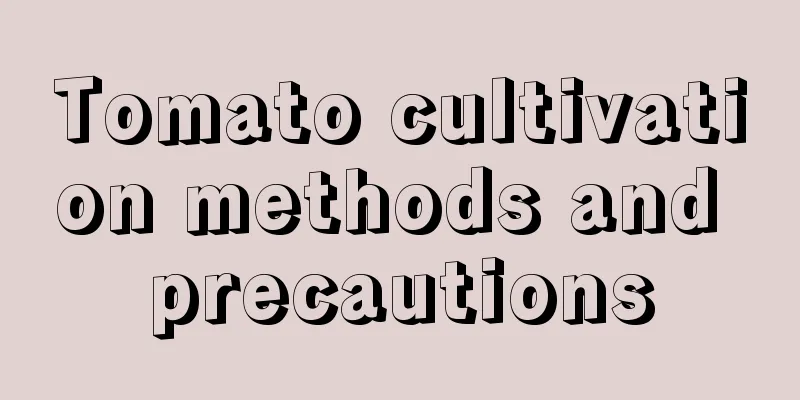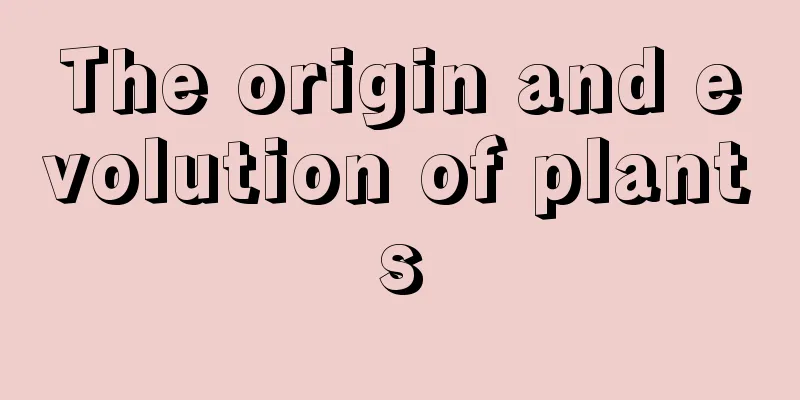Tomato cultivation methods and precautions

1. Maintenance methods1. Temperature: The most suitable temperature is between 15 and 28 degrees. If conditions permit, the temperature at night can be controlled between 15-20 degrees, and the temperature during the day can be controlled between 25-28. The tomatoes grown in this way will be brighter in color and taste better. 2. Watering: It needs a lot of water to grow, but there should be no water accumulation in the soil. Therefore, it is best to choose soil with good drainage for planting. Generally, it needs to be watered in the morning and evening, especially during the growing season. After the growing season, watering once every two days is sufficient. 3. Fertilization: In addition to applying base fertilizer when planting seedlings, it needs to be fertilized once every half a month when it is in the vigorous growth stage, because it consumes a lot of nutrients. In addition to root fertilizer, it also needs to be fertilized once a month. 4. Light: It is a light-loving plant and requires a lot of light during its growth process. The daily light exposure time should not be less than six hours. Because of its light-loving characteristics, it does not require shading. 2. Breeding techniques1. Reproduction: It can be propagated by sowing. Common sowing methods include row sowing, spot sowing and broadcast sowing. After sowing, the seeds should be covered with soil immediately, and then carbendazim should be evenly sprinkled on the soil. The purpose is to avoid the seedlings from becoming soft and collapsed. If sowing in winter, a layer of film should be covered on the soil to ensure the temperature. 2. Pruning: Tomatoes are more likely to grow nutrient branches. If any, they need to be cut off as soon as possible to avoid nutrient dispersion. It is enough to leave three or four fruit clusters on each branch. If there are too many, insufficient nutrients will cause the plant to reduce yield. 3. Problem Diagnosis1. Hollow fruits: This situation is mostly caused by excessive watering or insufficient light. To solve this problem, first of all, you must ensure sufficient water during cultivation, but avoid waterlogging in the soil. Secondly, you must ensure at least six hours of light per day. 2. Tomato flower skin: The reason why the plant has flower skin is probably because the fruit has uneven coloring when it turns from green to red, that is, uneven light. Therefore, during the cultivation process, the fruit needs to be turned at regular intervals to ensure uniform light to solve this problem. IV. Other issues1. Not suitable to be eaten raw: Tomatoes cannot be eaten raw because they easily react with stomach acid and affect digestion. Therefore, they should not be eaten raw. 2. It is not suitable to eat it with seafood. If you eat it with seafood, eating too much will cause intestinal discomfort. |
<<: Hydrangea cultivation methods and precautions
>>: Cultivation methods and precautions of straw chrysanthemum
Recommend
The language and meaning of camellia
1. Flower language and meaning 1. Humility: Camel...
Maintenance methods of tiger skin orchid in winter
Sansevieria , also known as Tiger Tail Orchid, is...
How often should I water Ji Longyue?
How often should I water Ji Longyue? The moonflow...
What to do if blue stone lotus has black rot
Black rot Black rot of blue stone lotus is mostly...
Cultivation methods and precautions for potted bougainvillea
Potted bougainvillea is a common flower plant. Th...
Desert Rose Cuttings and Grafting
Desert rose cuttings Desert rose cuttings are usu...
Open-air cucumber management technology
Cucumber is a widely grown vegetable with a relat...
Garlic price, how much is garlic per pound
1. How much is one pound The price of garlic vari...
Can mint be grown in sand?
Can mint be grown in sand? Generally, mint can be...
What fertilizer is suitable for fig trees?
When to fertilize fig trees Generally speaking, b...
What flowers don't need sunlight?
1. Brazilian wood The rubber tree is very shade-t...
Key points of agricultural production activities in Xiaohan
The arrival of the Minor Cold solar term means th...
Time and method of changing soil for iron tree
Time to change the soil of iron tree The best tim...
The growing environment and local conditions of gourd
Gourd Growth Environment and Conditions The gourd...
How often should I water the red peperomia?
How often should I water the red peperomia? Gener...









